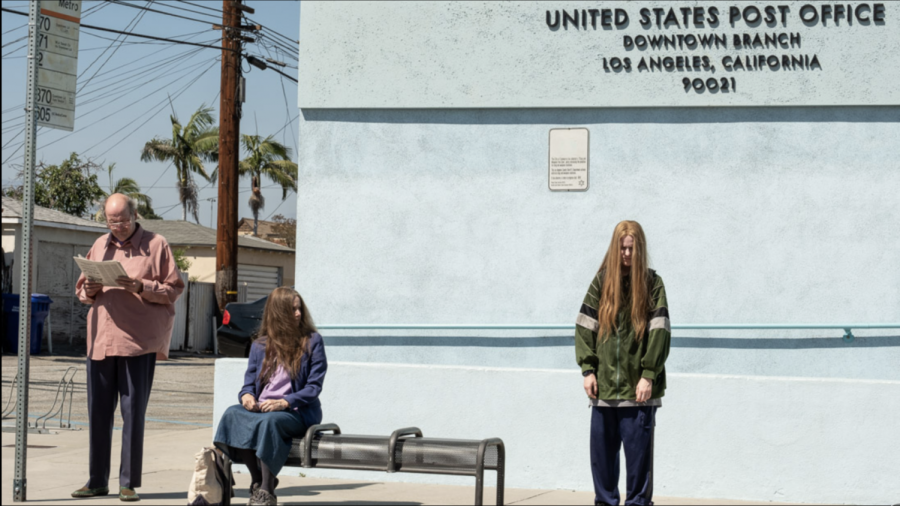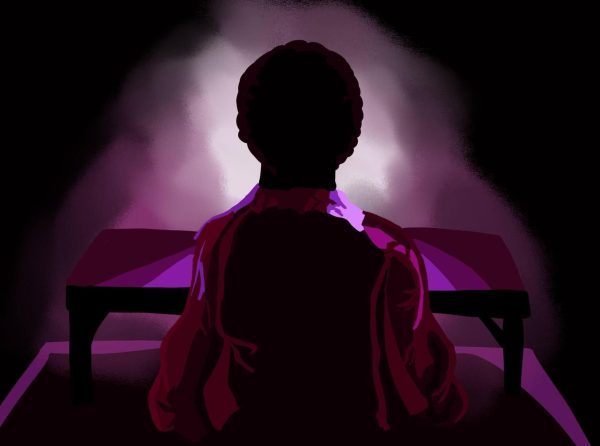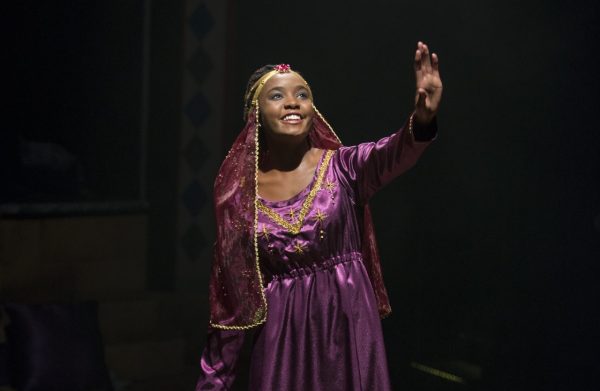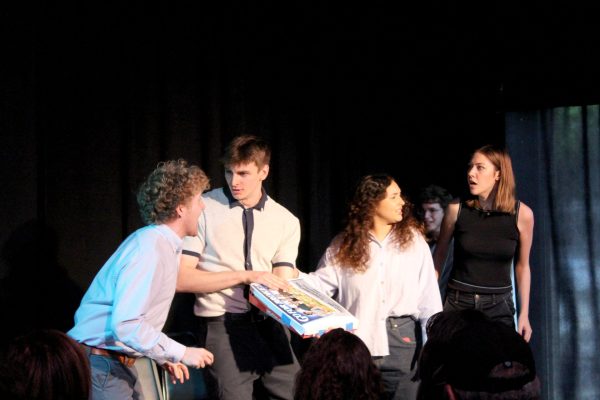REVIEW: ‘Kajillionaire’ masterfully portrays dysfunctional family
Still from “Kajllionaire,” written and directed by Miranda July.
American indie films are no stranger to weird quirky dysfunctional families. Whether it be “The Royal Tenenbaums,” “Little Miss Sunshine,” “Buffalo ‘66” or “Captain Fantastic,” it seems that there will always be some sort of keen relatability and comfort lying in the formula for this particular type of cinema. But no filmmaker has actively challenged the framework of the quirky dysfunctional family melo-dramedy quite like Miranda July has with her latest film “Kajillionaire.”
“Kajillionarie” — which, just like both of July’s previous features, premiered at this year’s Sundance Film Festival — follows Robert and Threasa Dyne (Richard Jenkins and Debra Winger) and their 26-year-old daughter Old Dolio (Evan Rachel Wood). The Dynes are petty grifters, skimming by on whatever mail they can steal and loose items they can get a refund on in order to pay their rent on the abandoned office building they live in.
Nothing about their operation is family based — it’s all coldly transactional and self-preserving. Though, everything changes for the Dynes once they cross paths with the effervescent and tender Melanie. Her fast-talking energy, enthusiasm and widely apparent normality shakes the group and forces Old Dolio to confront painful realizations about her parents and the life she really wants to lead with Melanie.
What ensues is a wildly heartfelt, idiosyncratically subversive and peculiarly entertaining meditation on rigid family ties, belated coming-of-self-worth and the quiet terror of emotional intimacy. July uses the blossoming relationship between Old Dolio and Melanie as a juxtaposed way to dismantle the aforementioned quirky dysfunctional family trope.
With the Dynes, there’s a mundane sense of performance between the three — like they all need to act against who they really are in order to stay afloat as an operation. And it isn’t until Melanie comes into the picture that Old Dolio realizes this, and it’s also where July subtly confronts her own leaning into quirk and whimsy and goes more for a maturing sense of growth and honesty.
Even in the midst of creating this bit of an inner-monologue, July never compromises her own vision for it. The world bends to her will in her films and this isn’t without some brilliantly executed moments of singular surreal beauty. A borderline ethereal little earthquake sequence and a serene moment of Old Dolio performing a dance for Melanie really standout as some of the most breathtaking and dynamic moments of the film.
It’s not hard to imagine literally any filmmaking than July messing these sequences up by dialing them too far up (something that I would say July was guilty of with her 2011 film “The Future) but July shows immense restraint and patience.
Her immaculately soft and yet simultaneously honest approach makes for such a disarmingly unpredictable experience so to spoil any of the directions this film goes in its final act would be a massive disservice.
“Kajillionaire” is genuinely one of the most miraculous films I’ve ever seen. Ever since I walked out of the door of the Eccles Theater at Sundance, this January it has never left my mind nor stopped emotionally affecting me. It’s July’s most powerful piece of work and there’s a topicality to it — a more cruel portrayal of the world and the capitalist society we live in.
There is an urgency to mine deeper for self-worth and happiness, and it’s easy to be found in July’s world here. In one of my favorite scenes, Melanie tells Old Dolio that “Most happiness comes from dumb things.” And she’s right. Much like this film, those dumb things can even end up being the things that save you.















